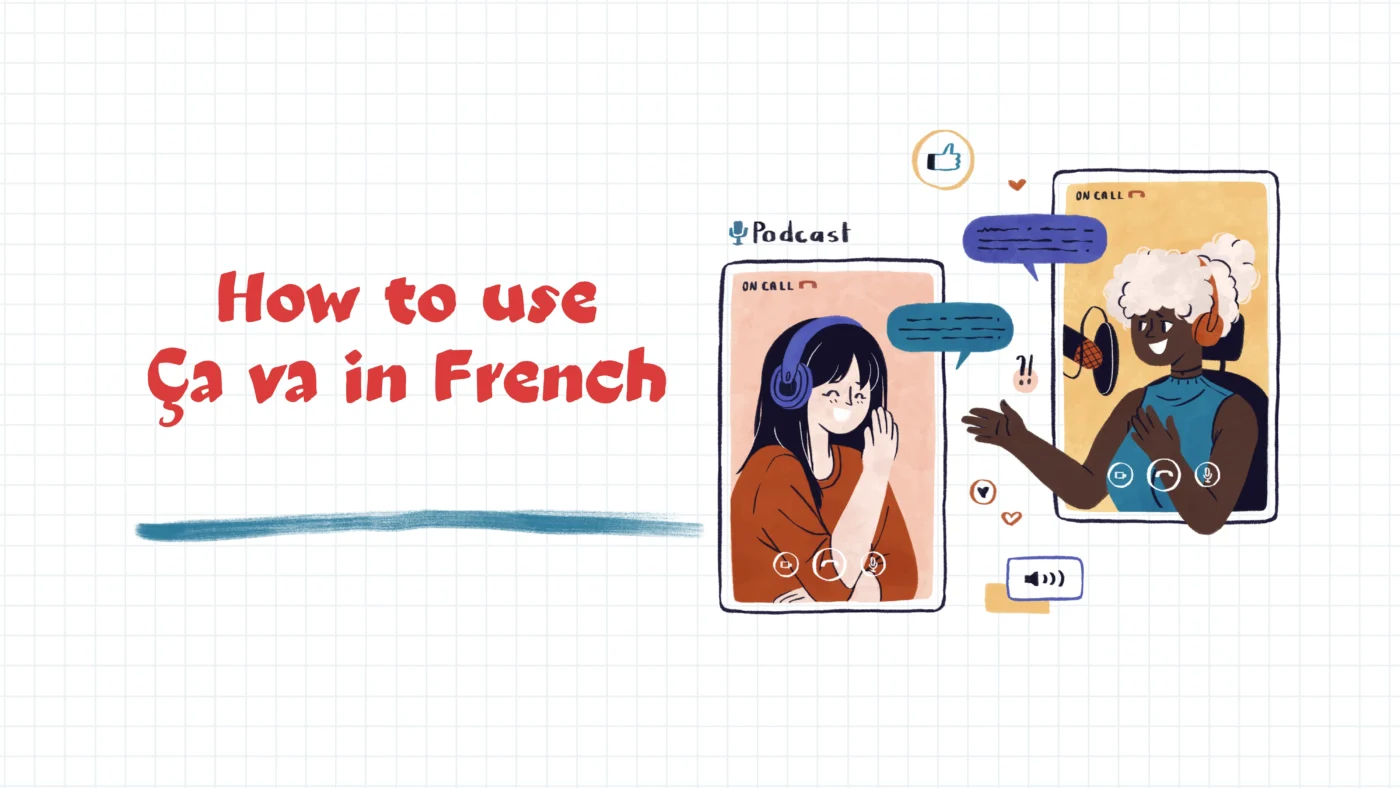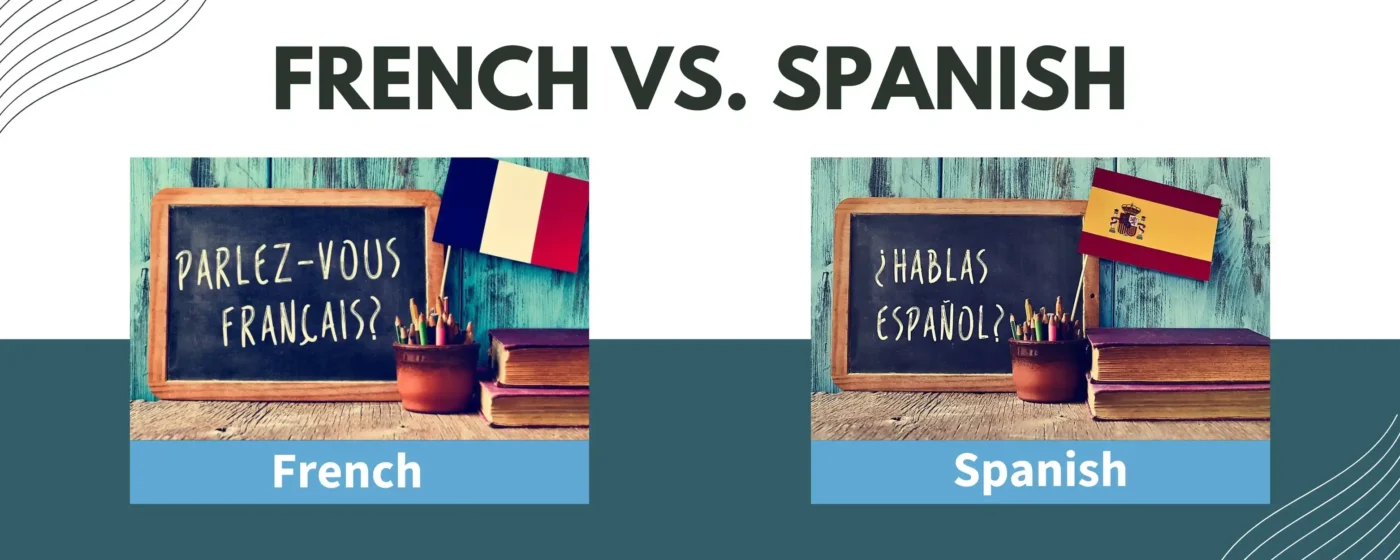“Ça va” is a versatile French phrase meaning “How are you?” or “I’m fine.” This article aims to explain its various uses and provide 10 essential expressions to help you master everyday French conversations. By understanding these key phrases, you’ll improve your ability to communicate effectively in diverse situations.
Understanding “Ça va”
“Ça va” is a basic and versatile French phrase that translates to “How are you?” or “I’m fine.” Literally, it means “It goes,” but in everyday conversations, it serves as a casual greeting or response. When someone asks, “Ça va?” they want to know how you’re doing, and a typical response would be “Ça va bien” (“I’m doing well”) or simply “Ça va” to indicate you’re okay. This phrase is a staple in French interactions, making it essential for anyone learning the language.
How to Ask and Answer “How Are You?” in French
“Ça va” is commonly used in informal settings to ask and answer “How are you?” in French. It’s a go-to phrase for casual conversations with friends and family. When you greet someone with “Salut! Ça va?” you’re asking how they’re doing. A typical response might be “Ça va, merci!” meaning “I’m fine, thank you!” followed by “Et toi?” to ask “And you?”
Example Dialogue:
Q: “Salut! Ça va?”
A: “Ça va, merci! Et toi?”
Expressions Using “Ça va”
1. Ça va? (How are you?)
“Ça va?” is a straightforward greeting in French used to inquire about someone’s well-being. It’s informal and commonly used among friends and family. The literal translation is “Is it going?” or “Is everything okay?” This phrase sets the stage for a casual conversation starter where you’re showing interest in the other person’s current state.
2. Ça va bien. (I’m fine.)
When someone responds with “Ça va bien,” it indicates that they’re doing well. It’s a positive affirmation in casual interactions to convey that everything is going fine in their life at that moment.
3. Ça va mal. (I’m not well.)
Conversely, “Ça va mal” is used when someone is not doing well. It signals that the person might be feeling unwell, having a bad day, or facing some challenges. It’s a straightforward way to express a negative state of being in response to the inquiry about one’s well-being.
4. Comment ça va? (How’s it going?)
“Comment ça va?” is a slightly more formal way of asking “Ça va?” It’s used in various contexts, from casual greetings among acquaintances to more formal situations. This phrase implies a deeper interest in the other person’s current circumstances or mood.
5. Ça va mieux. (It’s going better.)
“Ça va mieux” indicates an improvement in one’s situation or mood. It’s used when things were not going well previously but have since improved. This expression is optimistic and acknowledges positive change.
6. Ça va? Ça va. (Are you okay? I’m okay.)
This exchange demonstrates a typical casual conversation where “Ça va?” is used twice: first as a question and then as an affirmative response. It’s a simple way to check on someone’s well-being and confirm that everything is okay.
7. Ça va sans dire. (It goes without saying.)
“Ça va sans dire” is an idiomatic expression that translates to “It goes without saying.” It’s used to emphasize that something is obvious or understood without needing to be explicitly stated. For example, if everyone is expected to arrive on time for a meeting, you might say, “Ça va sans dire que nous devons tous être là à l’heure.”
8. Ça va de soi. (It’s self-evident.)
Similar to “Ça va sans dire,” “Ça va de soi” also means “It’s self-evident.” It conveys the idea that something is so obvious that it doesn’t need to be explained further. This expression is more formal and can be used in both casual and professional contexts.
9. Ça va aller. (It will be okay.)
“Ça va aller” is a reassuring phrase used to comfort someone who might be going through a tough time or facing challenges. It implies that things will improve or work out in the end, offering encouragement and support.
10. Ça va marcher. (It’s going to work.)
“Ça va marcher” expresses confidence in a plan, idea, or solution. It’s used when you believe that something will succeed or be effective. This phrase is often used optimistically to reassure oneself or others about the outcome of a situation.
Need French Learning Shortcuts?
La Forêt’s tutors have tips to boost fluency faster. Make every minute count!
Other Uses for “Ça va” in French
1. “Ça va, ça vient” (It comes and goes)
The phrase “Ça va, ça vient” is used to describe something that fluctuates or varies over time. It translates to “It comes and goes” in English and is often used to talk about changes in mood, circumstances, or situations. For example, you might say, “Avec ce projet, ça va, ça vient,” meaning “With this project, it’s up and down.”
2. “Ça va” to politely refuse an offer
In French, “Ça va” can be used to politely decline an offer or suggestion without being too direct. For instance, if someone offers you a second helping of food and you don’t want any more, you might respond with “Non merci, ça va,” meaning “No thanks, I’m good.”
3. “Ça vaaaa” to downplay a mistake
When someone makes a minor mistake or slips up in French, they might say “Ça vaaaa” with a drawn-out tone to downplay the seriousness of the error. It’s similar to saying “It’s okay” or “No big deal” in English, showing that the mistake isn’t a significant issue.
4. “Ça me va” to indicate something is fine by you
“Ça me va” is used to express approval or agreement with something. It translates to “It’s fine by me” or “It suits me” in English. For example, if someone suggests a time for a meeting and it works for you, you might respond with “Ça me va,” indicating that the proposed time is acceptable.
Practical Tips for Using “Ça va”
Using “Ça va” effectively in French conversations involves understanding its various contexts and nuances. Here are some practical tips:
1. Asking and Responding:
- Casual Greeting: Use “Ça va?” to greet friends, family, or acquaintances. It’s a friendly way to ask how someone is doing.
- Positive Response: Respond with “Ça va bien” when you’re feeling good or things are going well.
- Negative Response: Use “Ça va mal” to indicate that you’re not doing well or having a rough time.
2. Formal and Informal Use:
- Formal: Use “Comment ça va?” in more formal settings or with people you’re not as familiar with.
- Informal: Stick to “Ça va?” among friends and in casual situations.
3. Expressions and Idioms:
- “Ça va, ça vient”: Use this expression to describe something that fluctuates or varies over time. For example, in discussing a project’s progress.
- Politely Refusing: Say “Ça va” to politely decline an offer or suggestion without being blunt.
- Downplaying Mistakes: Use “Ça vaaaa” in a relaxed tone to downplay a minor mistake or slip-up.
- Indicating Approval: Use “Ça me va” to indicate that something is fine by you or that you agree with a suggestion.
4. Practice and Observation:
- Listen Actively: Pay attention to how native speakers use “Ça va” in different contexts. This will help you understand when and how to use it appropriately.
- Practice Conversations: Engage in conversations where you can use these expressions naturally. The more you practice, the more comfortable you’ll become with using “Ça va” in various situations.
5. Cultural Awareness:
- Regional Differences: Be aware that expressions and usage of “Ça va” can vary slightly across different French-speaking regions. Adapt your usage based on local customs and norms.
Conclusion
In summary, “Ça va” serves as more than just a greeting in French—it’s a versatile phrase that embodies various expressions of well-being, mood, and agreement. From casual greetings to nuanced expressions like “Ça va bien” and “Ça va mal,” mastering these uses enhances your ability to navigate French conversations fluidly. Practice using these expressions to enrich your language proficiency and deepen your understanding of French culture and communication nuances.
Frequently Asked Questions
Q: How do I reply to ça va?
Ans: Reply to “ça va?” with “Ça va bien” if you’re doing well, or “Ça va mal” if you’re not. It’s a simple way to share your current state in casual conversations.
Q: What is the difference between ça va and comment ça va?
Ans: “Ça va?” is a casual way to ask “How are you?”, while “Comment ça va?” is slightly more formal. Use “Ça va?” with friends and “Comment ça va?” in more polite or professional settings.
Q: How do I reply bien et toi?
Ans: Reply “Bien, merci!” which means “Well, thank you!” This exchange is common in French conversations to reciprocate the inquiry about someone’s well-being.





